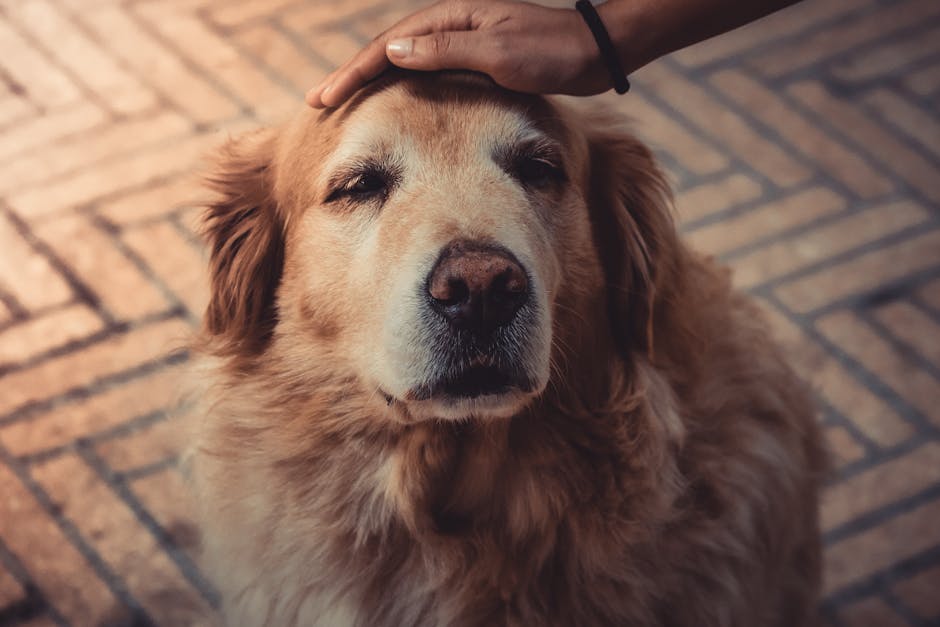The Importance Of Reliability In Friendships
Friendships thrive on reliability. It’s the glue that holds relationships together, ensuring trust, emotional safety, and mutual respect. Without it, even the closest bonds can feel shaky and uncertain. But why does reliability matter so much, and how can we cultivate it in our friendships? Let’s dive in to explore the role of reliability in creating meaningful, lasting connections.
Key Takeaways
- Reliability is essential for building trust and emotional security in friendships.
- Unreliable behavior can lead to frustration, disappointment, and strained relationships.
- Understanding the causes of unreliability helps manage expectations and strengthen bonds.
- Supportive friendships, built on trust and consistency, enhance emotional resilience.
Introduction to Reliability in Friendships
Definition of reliability in the context of friendships
Reliability in friendships means being someone your friends can count on. It’s about keeping promises, showing up when needed, and being consistent in your actions. Whether it’s lending an ear during tough times or simply remembering a birthday, reliability signals that you value the relationship.
Importance of trust and reliability in building strong relationships
Trust is the cornerstone of any friendship, and reliability is what builds that trust. When someone proves they’ll be there for you, it creates a sense of emotional safety. This allows both people to open up, share vulnerabilities, and deepen their connection.
Overview of the blog post structure
In this post, we’ll explore how reliability strengthens friendships, the consequences of unreliability, and practical ways to foster dependable relationships. By the end, you’ll have a clearer understanding of why reliability is a non-negotiable ingredient in any meaningful bond.

The Role of Reliability in Deepening Friendships
How reliability fosters trust and emotional security
Imagine planning a trip with a friend who always cancels at the last minute. Frustrating, right? Now, think about a friend who always shows up, rain or shine. That’s the difference reliability makes. It builds trust, creating a safe space where both people feel valued and supported.
Characteristics of close friendships: disclosure and emotional support
Close friendships thrive on mutual disclosure and emotional support. When friends are reliable, it’s easier to share personal thoughts and feelings without fear of judgment or abandonment. This creates a bond that feels unshakable.
The impact of reliability on the depth and quality of relationships
Reliable friends are like anchors in a stormy sea. They provide stability and reassurance, making life’s challenges easier to face. Over time, this consistency deepens the relationship, transforming casual acquaintances into lifelong companions.

Consequences of Unreliability in Friendships
Emotional effects of unreliable friends
Frustration and disappointment
Unreliable friends can leave you feeling frustrated and let down. When someone repeatedly breaks promises or fails to follow through, it’s natural to feel hurt.
Impact on emotional well-being
Over time, dealing with unreliable friends can take a toll on your mental health. It can lead to feelings of rejection, insecurity, and even loneliness.
How unreliability can strain or weaken friendships
Unreliability creates cracks in the foundation of a friendship. It erodes trust, making it harder to rely on the person in the future. This can lead to resentment and, eventually, the relationship falling apart.
Adjusting expectations to manage feelings toward unreliable friends
Sometimes, understanding the reasons behind a friend’s unreliability can help. For example, they might be dealing with personal challenges or mental health issues. Adjusting your expectations can prevent disappointment while maintaining the friendship.

Factors Contributing to Unreliability
Personal circumstances affecting reliability
Anxiety and mental health challenges
Mental health issues like anxiety or depression can make it difficult for someone to be reliable. They might struggle with commitments or feel overwhelmed by social obligations.
Poor time management or organizational skills
Some people aren’t unreliable on purpose—they just lack the skills to manage their time effectively. This can lead to missed plans and broken promises.
Cultural attitudes toward reliability and commitment
In some cultures, punctuality and commitment are highly valued, while in others, a more relaxed approach is the norm. Understanding these differences can help you navigate friendships with people from diverse backgrounds.
Recognizing unintentional unreliability in friends
Not all unreliability is intentional. Sometimes, life gets in the way. Recognizing this can help you approach the situation with empathy rather than frustration.

Strategies for Navigating Unreliable Friendships
Accepting and understanding their behavior
Instead of taking unreliability personally, try to understand the reasons behind it. This can help you approach the situation with compassion rather than anger.
Avoiding over-reliance on unreliable friends for plans
If you know a friend tends to cancel plans, avoid relying on them for important commitments. Instead, focus on enjoying their company when they are available.
Setting boundaries and managing expectations
Clear communication is key. Let your friend know how their behavior affects you and set boundaries to protect your emotional well-being.
For more insights on managing friendships, check out this guide on showing up consistently in friendships.

Building and Maintaining Supportive Friendships
Identifying and nurturing important connections
Focus on friendships that bring joy and support into your life. These are the relationships worth investing in.
Characteristics of supportive friendships
Regular communication
Supportive friends stay in touch, even when life gets busy. A quick text or call can go a long way in maintaining the connection.
Appreciation and active listening
Good friends show appreciation and listen without judgment. This creates a safe space for both people to express themselves.
The role of supportive friendships in emotional stability and resilience
Supportive friendships act as a buffer against life’s challenges. They provide a sense of belonging and help you bounce back from setbacks.
For more on building trust in friendships, explore this article on honesty in relationships.

The Broader Importance of Reliability in Relationships
Reliability as a foundation for long-term connections
Whether it’s a friendship, romantic relationship, or professional partnership, reliability is the bedrock of any lasting connection.
How reliability influences professional and social relationships
In the workplace, reliable colleagues are often the most respected and trusted. Similarly, in social settings, reliability makes you a valued member of the group.
The benefits of having reliable friends in various aspects of life
Reliable friends enrich your life in countless ways. They provide emotional support, celebrate your successes, and stand by you during tough times.
For more on the importance of reliability, read this detailed exploration.
Conclusion
Recap of the importance of reliability in friendships
Reliability is the backbone of any strong friendship. It builds trust, fosters emotional security, and deepens connections.
Encouragement to cultivate and value reliable relationships
Invest in friendships that bring out the best in you. Be the kind of friend you’d want to have—reliable, supportive, and trustworthy.
Final thoughts on fostering trust and emotional support in friendships
At the end of the day, friendships are about showing up—for the good times and the bad. By prioritizing reliability, you can create bonds that stand the test of time.
For more on the value of honesty and trust in friendships, check out this article.

Friendships, like gardens, need care and attention to flourish. So, let’s all strive to be the kind of friend who’s always there when it matters most. After all, a reliable friend is a treasure worth cherishing.
FAQ: Understanding the Importance of Reliability in Friendships
Why is reliability such an important trait in friendships?
Reliability builds trust, which is the foundation of any strong friendship. When friends know they can count on each other, it fosters a sense of security and deepens the bond between them.
How does being reliable impact the quality of a friendship?
Being reliable ensures that your friends feel valued and supported. It strengthens mutual respect and creates a positive dynamic where both parties feel emotionally safe and understood.
What are some examples of being reliable in a friendship?
Examples include keeping promises, showing up when you say you will, being consistent with your behavior, and offering support during tough times. These actions show commitment and care.
Can a friendship survive if one person is unreliable?
While some friendships may endure periods of unreliability, it can strain the relationship over time. Consistent unreliability can lead to frustration, disappointment, and a loss of trust, making it difficult for the friendship to thrive.
How can I become a more reliable friend?
Start by being honest about your capabilities and commitments. Follow through on your promises, communicate openly, and prioritize your friend’s needs when they rely on you. Small, consistent actions go a long way.
What are the signs of an unreliable friend?
Signs include frequently breaking promises, canceling plans last minute, being inconsistent in their behavior, or failing to offer support when needed. These patterns can indicate a lack of dependability.
How does reliability contribute to emotional well-being in friendships?
Reliability fosters a sense of stability and trust, which are crucial for emotional well-being. Knowing you have someone dependable in your life can reduce stress and provide comfort during challenging times.
Can reliability be rebuilt if it’s lost in a friendship?
Yes, but it requires effort and consistency. Open communication, sincere apologies, and a commitment to change can help rebuild trust over time. Patience and understanding from both sides are essential.
Are there cultural differences in how reliability is perceived in friendships?
Yes, cultural norms and values can influence how reliability is viewed. In some cultures, punctuality and consistency might be emphasized, while in others, flexibility and understanding may take precedence.
What role does communication play in maintaining reliability in friendships?
Clear and honest communication is key to reliability. It helps set expectations, resolve misunderstandings, and ensure both friends are on the same page, strengthening the foundation of the relationship.



